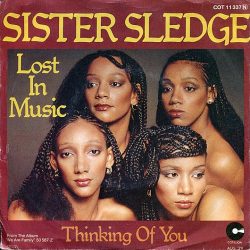It was the great Bill Shankly that famously said, ‘Some people believe football is a matter of life and death… I can assure you it is much, much more important than that.’
A lot has changed in football since Bill Shankly’s day, but the importance that the ‘beautiful game’ plays in many of our lives remains. Football clubs mean a lot to people. Sometimes, maybe too much (and I speak from experience). And today, with 3.9 billion people watching premier league football last year, across 207 countries, football clubs are very much brands. And a few clubs are literally global mega-brands, amongst the most popular and followed brands on the planet.
Despite the desires of Chairman Daniel Levy, and owners ENIC, Tottenham Hotspur isn’t a global mega-brand quite yet. But, the North London club has grown enormously over the past twenty years and is according to reports, the ninth richest club in the world, predominately down to its brand spanking new state of the art stadium, world leading training facilities and NFL and music partnerships. Oh, and Harry Kane of course.
Tottenham parted company with high profile Manager Antonio Conte earlier this week, after the Italian called the Spurs players ‘selfish’ and criticised the club’s culture in a remarkable news conference. But, a new manager search isn’t Tottenham’s biggest challenge. The club also has a serious brand strategy problem.

Most marketers have either read, or come across, Les Binet and Peter Field’s The Long and the Short of It: Balancing Short and Long-Term Marketing Strategies. But I’m not convinced the Tottenham board have.
The paper focuses on a growing tension that exists between short-term response activity and long-term brand-building. It’s a tension that sits at the very heart of Tottenham Hotspur Football Club.
Successful brands need a solid brand strategy. They need a long-term vision, and clarity around this vision. They need a clear identity. They also need to understand their target audience deeply — what makes them tick and why they choose to engage with their brand. Having a consistently brilliant product is also rather useful. And sadly, for Spurs fans, these are all areas that Tottenham have failed on.
‘Audere est Facere‘ / ‘To dare is to do‘, is the Tottenham Hotspur motto. It speaks to passion, flair, entertainment, and aiming for glory. Tottenham have a long tradition of playing entertaining and exciting football. Think Hoddle, Ardiles, Klinsmann, and more recently Modric, Bale and Kane. This is the brand DNA of the club that Tottenham fans fell in love with. Not always winning (very few clubs do), but entertaining fans and playing attacking, positive football. The Tottenham way.
Mauricio Pochettino, Tottenham manager until 2019, truly embraced this style and brand of football. As a team and as a brand, Tottenham peaked under Pochettino, establishing themselves as Premiership title contenders and Champions league finalists, playing high energy, modern, attacking football, with a group of young enthusiastic players (including some from the club’s youth development system). The Club’s brand, product and followers all seemed to be in complete harmony, all moving in the same direction with a clear vision and purpose.
All of this was achieved without significant financial investment in players (product), compared to their big spending Premiership rivals. And the club had a moment, and an opportunity, when their true vision could have been fulfilled, by investing in the product further, and building and improving a team, capable of truly winning things.
But things went sour.
Football is a tough business
A lack of new player investment was followed by a drop in form and Pochettino’s sacking. Rather than sticking to their long-term brand strategy, they chased instant short-term success, even if it meant a departure from their identity. By hiring Jose Mourinho and then Antonio Conte, they hired pragmatic, short term ‘win at all costs’ managers who stood for defensive, safety-first football, to grind out points, using highly experienced world class players.
In truth, Tottenham could never embrace these methods, as the required players were out of reach financially. And in chasing short-term success at all costs, Tottenham also accepted these managers established history of going for broke, and then leaving clubs in complete and utter disarray. As Tottenham are again in now.
There has been some success, with a top four finish achieved last year, but the departure from the club’s brand DNA and identity has alienated, and in many cases, infuriated the fan base. Consumers are now completely and utterly unengaged with the brand.
As the great Bill Nicholson, Tottenham’s most successful and treasured manager, said, ‘We must always consider our supporters, for without them there would be no professional football. It would be better to have more fans watching football the way they like it played, rather than have a few fans watching football the way we would like it played.‘
Tottenham have forgotten these wise words, chasing short-term success at all costs, and ignoring their longer-term vision and brand identity.
Tottenham’s player transfer business (i.e. product development) also seems to have been devoid of any long term brand strategy or planning. Tottenham have recently bought highly expensive creative midfield players and then employed a manager with a rigid system that doesn’t allow for them. Tottenham have also bought talented young players for significant money, only for the manager to refuse to play them. And in certain positions (i.e. the right side of defence), Tottenham have inextricably sold (or in two cases paid players to leave), without better players in the squad.
Every transfer seems to be made on the fly, in isolation, with no long-term strategic thinking.
Tottenham Hotspur now find themselves at a crucial crossroads.
What they do next will determine the future of Tottenham. Will they embrace their true brand DNA, and hire a manager who believes in an attacking positive and entertaining brand of football, to unite the club’s consumers, through a long-term strategy? Or, will they continue to sacrifice all of that, ignore their consumers, in the continued pursuit of a short term win?
As Bill Nicholson said, ‘It is better to fail aiming high than to succeed aiming low. And we of Spurs have set our sights very high, so high in fact that even failure will have in it an echo of glory.’
Glory Glory Tottenham Hotspur.
Featured image: Tottenham Hotspur
































